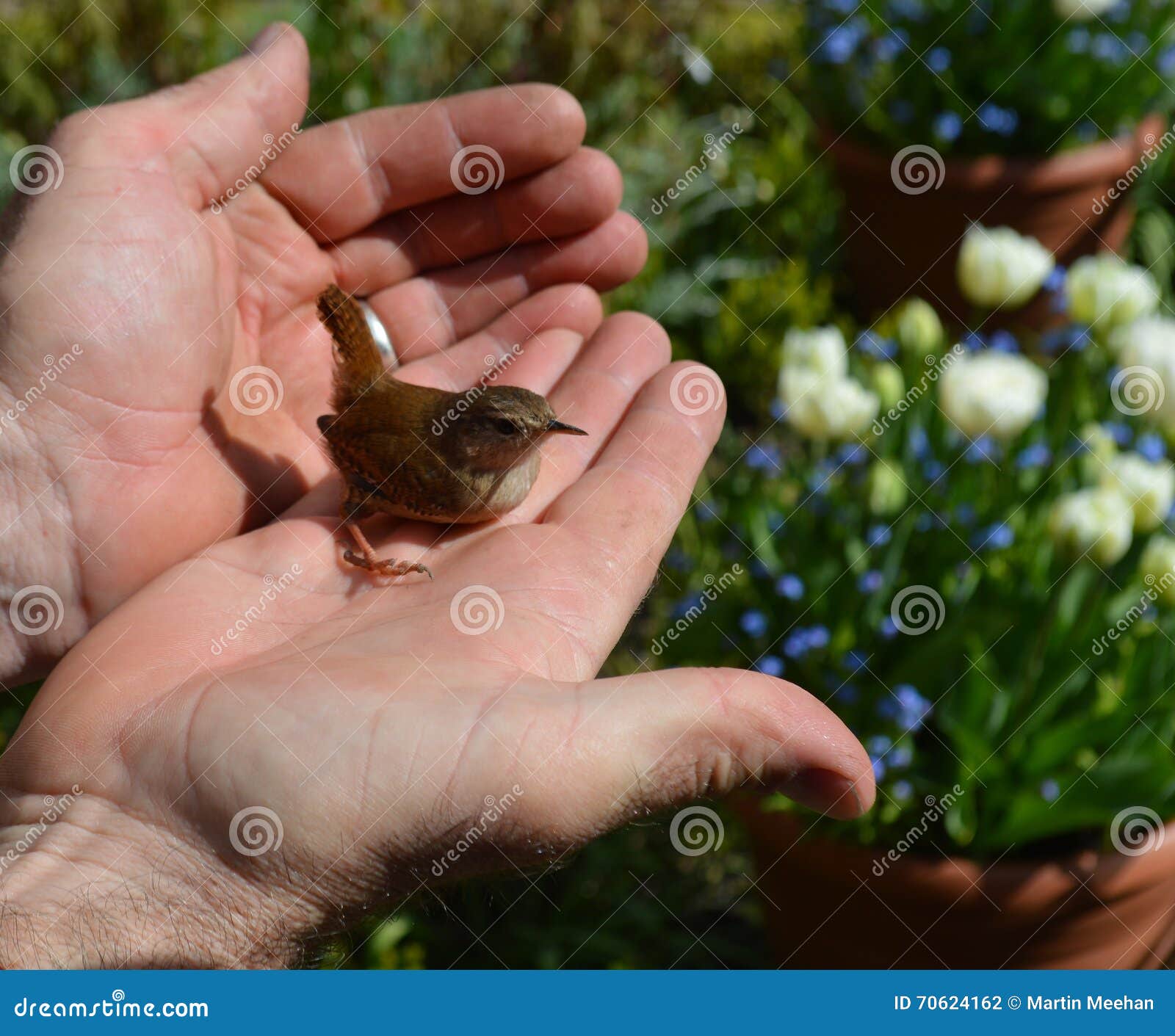
Bird in the Hand is Worth Two in the Bush. Stock Photo Image of
The idiom "a bird in the hand is worth two in the bush" is of ancient origin and has been used in various forms in different cultures throughout history. The phrase can also be found in Latin, where it was known as: plus valet in manibus avis unica quam dupla silvis. A bird in the hand is better than two in the forest.

A bird in the hand is worth two in the bush Poem Analysis
What Does a Bird in the Hand Mean? " A bird in the hand is worth two in the bush" means It's better to keep what you have, even if it is of lesser value than to go for something better and risk losing everything. As the saying goes, " A bird in the hand is worth two in the bush.".

“A bird in the hand (is worth two in the bush)” means “it is better to
bird in the hand, a. What one already has is better than what one might possibly get. The complete saying, "A bird in the hand is worth two in the bush," is an ancient Greek proverb, quoted in several of Aesop's fables. It was repeated by the Romans and appeared in English in the fifteenth century. There are numerous versions in other.

A bird in the hand is worth two in the bush
Like many other English proverbs, a bird in the hand is worth two in the bush offers a warning, specifically a warning about risk-taking. The expression conveys the idea that it may be better to hold onto what you already have than to risk letting it go in hopes of finding something better. In other words, it encourages taking the sure bet, or.

My English Classroom IDIOM "A bird in the hand is worth two in the bush"
The term "a bird in the hand is worth two in the bush" means having something certain is better than taking a risk for more. In other words, it means it's better to hold onto what you have rather than running the risk of attaining something better, which could lead to getting nothing. The proverb comes from the sport of falconry, where "a bird.

A bird in the hand…
In English, variations on this proverb have been traced back to the mid 15th century. The first known use being in The Life of St Katherine by J Capgrave (1450): "It is more sekyr a byrd in your fest, Than to haue three in the sky a-boue." But earlier usage can be found in Latin dating back to at least the 13th century: Plus valet in manibus.

Pin on IDIOMATIC EXPRESSIONS
'A bird in the hand is worth two in the bush' is one of the oldest and best-known proverbs in English. It came into the language in the 15th century, probably imported from other cultures. The proverb warns against taking unnecessary risks. It is better to keep what you have (a bird) than to risk getting more and ending with nothing (two birds.

How to Make an Interesting Art Piece Using Tree Branches eHow
A bird in the hand is worth two in the bush is a proverb. A proverb is a short, common saying or phrase that particularly gives advice or shares a universal truth. Common proverbs are phrases used in the English language in order to convey a concise idea, and are often spoken or are considered informal or conversational.

A bird in the hand is worth two in the bush. BUT A man’s reach should
This proverb has its origins in medieval falconry, where a bird (falcon) in hand was more valuable than two in the bush (the prey). The earliest known usage in English is in the 15th century in "The Life of St Katherine" by John Capgrave. In its exact current form, the first use was in 1670 in "A Hand-book of Proverbs" by John Ray.
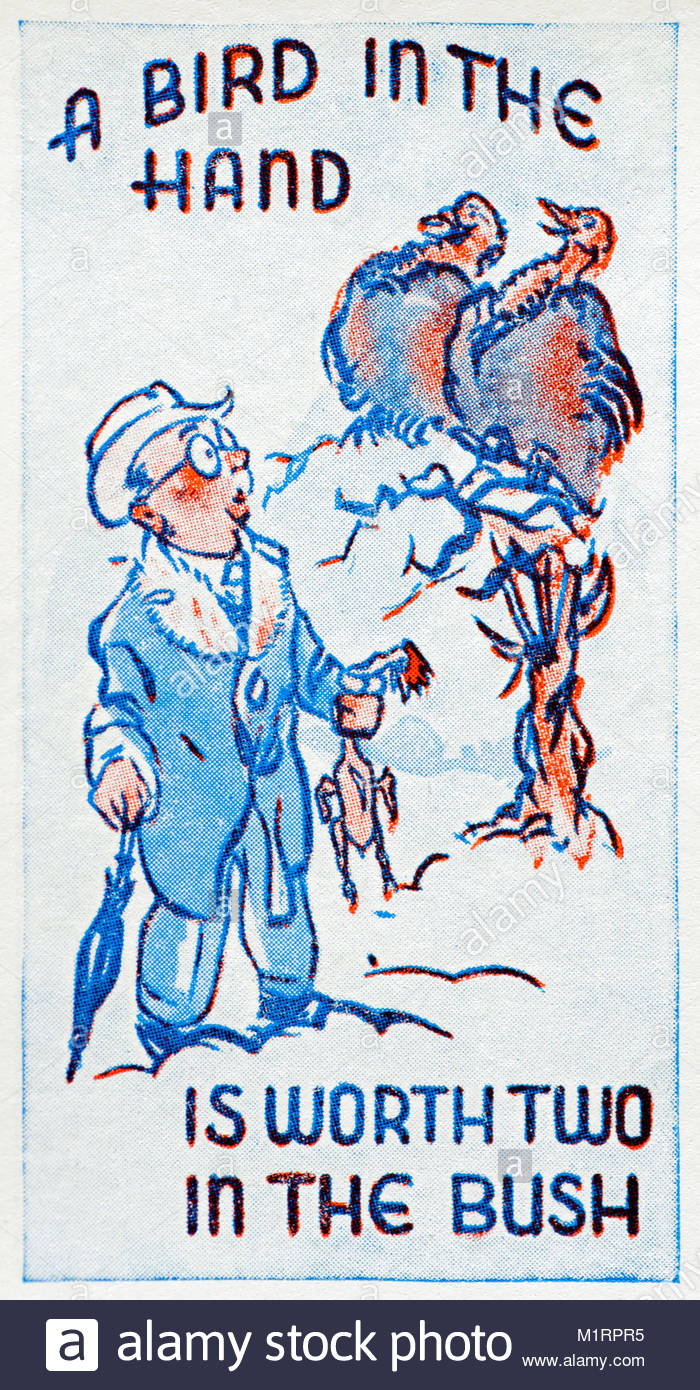
😀 A bird in hand is worth two in the bush. a bird in the hand is worth
"A bird in the hand is worth two in the bush" is an old proverb tracing back to medieval falconry. The phrase refers to the falcon on the falconer's hand as being worth more than the two birds in a bush. The falcon can provide food for the falconer, while the birds only offer a one-time meal.
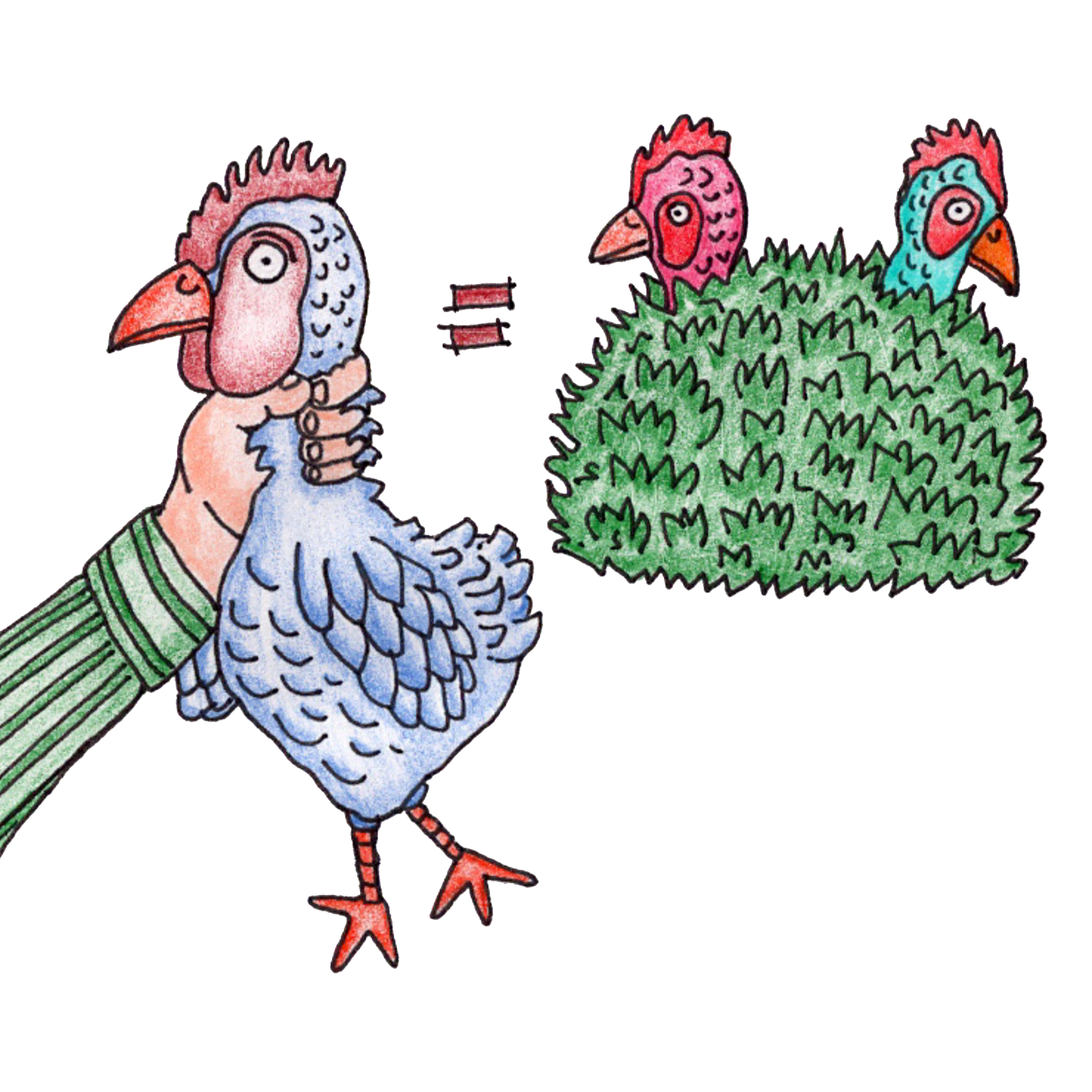
Visual Idioms
Ecclesiastes 6:9-11Living Bible. 9 A bird in the hand is worth two in the bush; mere dreaming of nice things is foolish; it's chasing the wind. 10 All things are decided by fate; it was known long ago what each man would be. So there's no use arguing with God about your destiny.

A bird in the hand is worth two in the bush Engliterra
Origins. "A bird in the hand is worth two in the bush," like most proverbs, has uncertain beginnings. It is most commonly related to medieval falconry, where one could consider the bird in the hand, the falcon, an asset. This is contrasted against the prey in the bush. The first written iteration of the phrase is found in A Hand-book of.
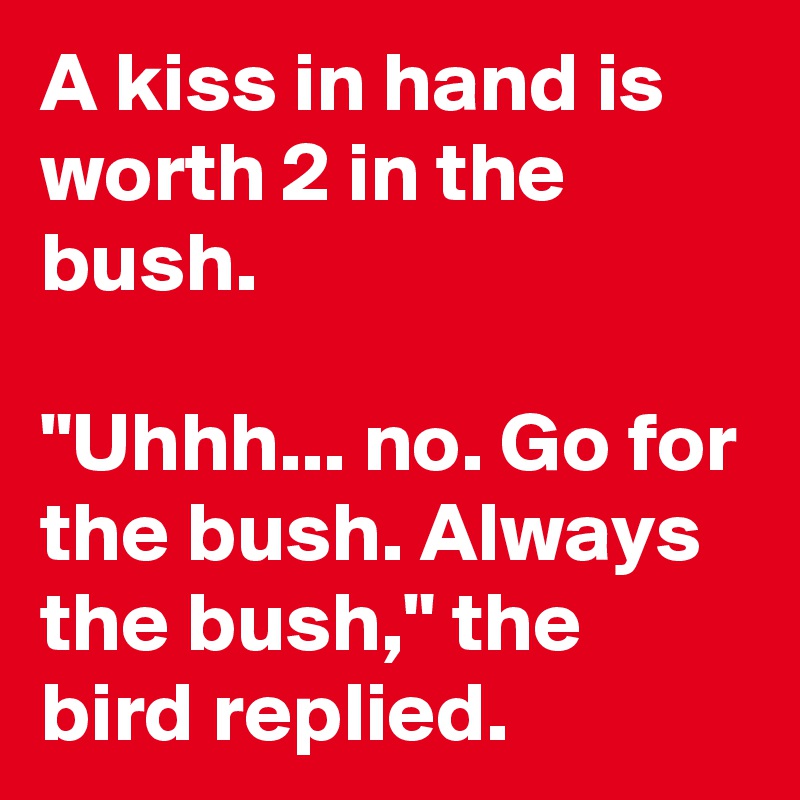
️ A bird i the hand is worth 2 in the. What Does A Bird in the Hand is
Etymology [ edit] Calque of Latin plus valet in manibus avis unica quam dupla silvis ("a bird in the hands is worth more than two in the forest "), possibly deriving from sources as old as the ancient Middle East, with the 6th century BCE Proverbs of Ahiqar including "a sparrow in thy hand is better than a thousand sparrows flying". [1]

English Idioms & Expressions A BIRD IN THE HAND IS WORTH TWO IN THE
The complete saying, "A bird in the hand is worth two in the bush," is an ancient Greek proverb, quoted in several of Aesop's fables. It was repeated by the Romans and appeared in English in.
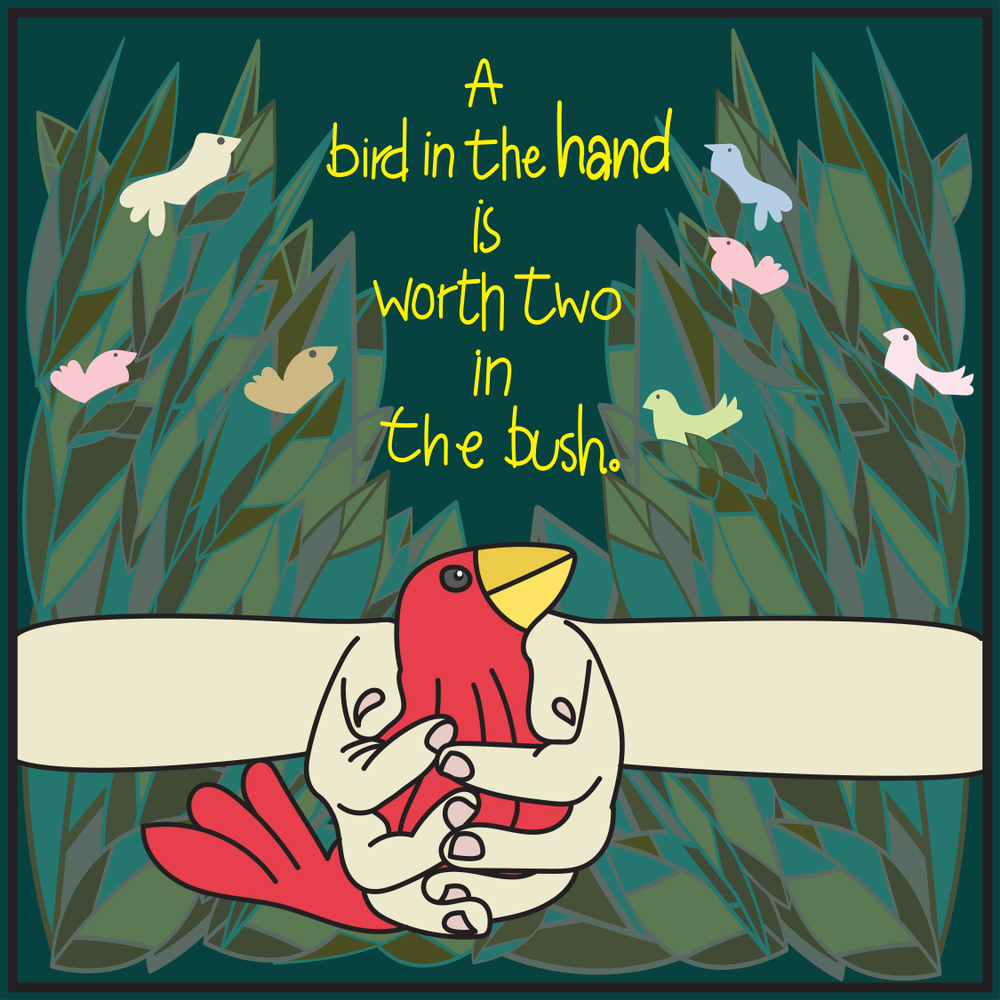
Anglické idiomy 48 English idioms Anglictinarychlo.sk
The meaning of A BIRD IN THE HAND IS WORTH TWO IN THE BUSH is —used to say that it is better to hold onto something one has than to risk losing it by trying to get something better.
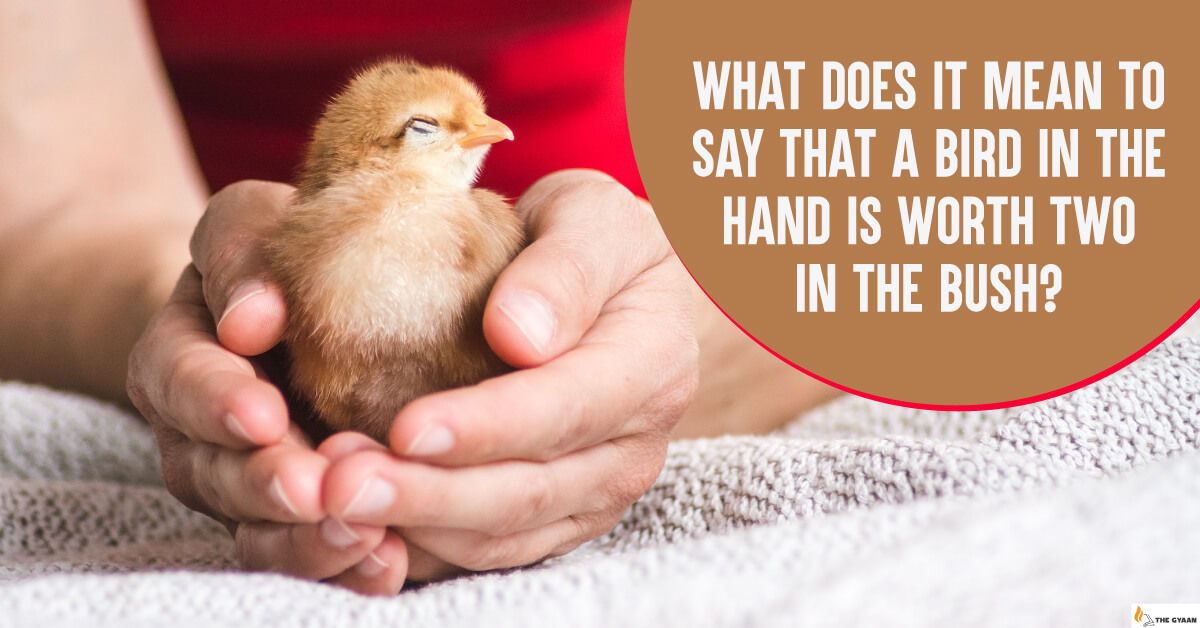
What Does It Mean to Say That a Bird in the Hand Is Worth Two in the
A BIRD IN THE HAND (IS WORTH TWO IN THE BUSH) definition: 1. said when you recognize that you should not risk losing something you already have by trying to…. Learn more.